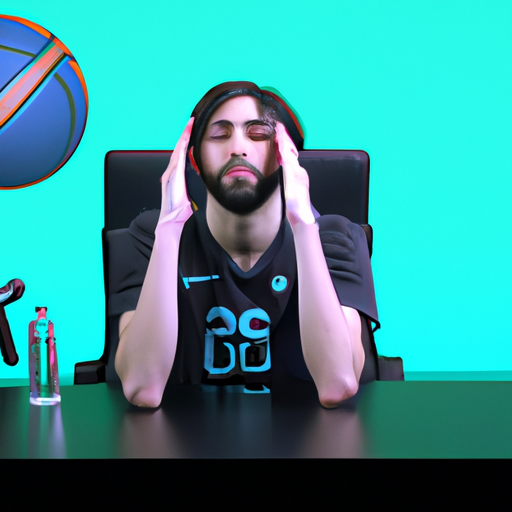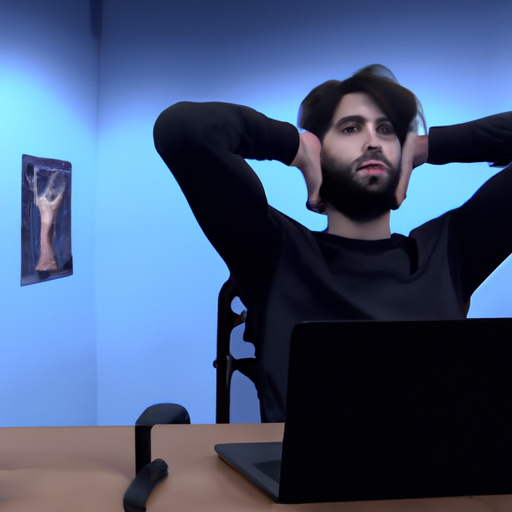Ricky Rubio announces break to prioritize mental health

Understanding the Importance of Mental Health Breaks in Professional Sports
Ricky Rubio, the professional basketball player known for his skills on the court, recently made headlines when he announced that he would be taking a break from the game to prioritize his mental health. This decision by Rubio sheds light on the importance of mental health breaks in professional sports, an issue that is often overlooked or misunderstood.
In today’s fast-paced and highly competitive world of professional sports, athletes are under immense pressure to perform at their best. They are constantly pushing their bodies to the limit, enduring grueling training sessions and intense games. While physical fitness is undoubtedly crucial for success in sports, mental well-being is equally important.
Athletes, like any other individuals, can experience mental health challenges such as anxiety, depression, or burnout. These issues can be exacerbated by the demanding nature of their profession, where they are constantly under scrutiny and expected to deliver exceptional results. Ignoring these challenges can have serious consequences, not only for the athletes themselves but also for their teams and their overall performance.
Taking a mental health break, as Rubio has chosen to do, is a courageous and necessary step towards addressing these challenges. It allows athletes to step back from the pressures of their sport and focus on their mental well-being. During this break, they can seek professional help, engage in therapy, and develop coping mechanisms to better manage their mental health.
It is important to note that mental health breaks are not a sign of weakness or failure. On the contrary, they demonstrate strength and self-awareness. By acknowledging their mental health needs and taking proactive steps to address them, athletes are setting an example for others and promoting a culture of mental well-being in the sports industry.
Moreover, mental health breaks can have long-term benefits for athletes’ performance. When athletes are mentally and emotionally healthy, they are better equipped to handle the pressures and challenges of their sport. They can think more clearly, make better decisions, and maintain a higher level of focus and concentration. In essence, taking care of their mental health allows athletes to perform at their peak and reach their full potential.
The importance of mental health breaks extends beyond the individual athlete. It also has implications for the team as a whole. When one player takes a break to prioritize their mental health, it sends a powerful message to the rest of the team that mental well-being is a priority. This can foster a supportive and understanding environment where athletes feel comfortable discussing their mental health challenges and seeking help when needed.
In recent years, there has been a growing recognition of the importance of mental health in professional sports. Sports organizations and leagues are implementing programs and initiatives to support athletes’ mental well-being. However, there is still much work to be done to break down the stigma surrounding mental health and ensure that athletes have the resources and support they need.
In conclusion, Ricky Rubio’s decision to take a break to prioritize his mental health highlights the significance of mental health breaks in professional sports. These breaks allow athletes to address their mental health challenges, improve their overall well-being, and enhance their performance on the field. By promoting a culture of mental well-being, sports organizations can create an environment where athletes feel supported and empowered to prioritize their mental health.
Exploring the Impact of Mental Health on Athletes’ Performance

Ricky Rubio, the talented point guard for the Minnesota Timberwolves, recently made headlines when he announced that he would be taking a break from basketball to prioritize his mental health. This decision has sparked a conversation about the impact of mental health on athletes’ performance and the importance of addressing these issues.
Mental health is a topic that is often overlooked in the world of sports. Athletes are expected to be strong, both physically and mentally, and any sign of weakness is often seen as a failure. However, the reality is that mental health issues can affect anyone, regardless of their profession or physical abilities.
For athletes, the pressure to perform at a high level can be immense. They are constantly under scrutiny from fans, coaches, and the media, and the fear of failure can be overwhelming. This constant stress can take a toll on their mental well-being and ultimately impact their performance on the field or court.
In Ricky Rubio’s case, he explained that he had been struggling with anxiety and depression for some time. He realized that he needed to take a step back and focus on his mental health in order to continue playing at a high level. This decision is commendable, as it shows that Rubio is prioritizing his well-being over his career.
Rubio’s announcement has shed light on the importance of mental health in the world of sports. It has sparked a conversation about the need for athletes to have access to mental health resources and support. Many organizations and teams are now recognizing the importance of addressing mental health issues and are implementing programs to support their athletes.
One such program is the NBA’s Mental Health and Wellness Program, which was launched in 2018. This program provides players with access to mental health professionals and resources to help them navigate the challenges they may face. It also aims to reduce the stigma surrounding mental health in the league and encourage players to seek help when needed.
The impact of mental health on athletes’ performance cannot be understated. When an athlete is struggling with mental health issues, it can affect their focus, motivation, and overall well-being. This can lead to a decline in performance and ultimately impact their team’s success.
By addressing mental health issues and providing support to athletes, teams and organizations can help their players perform at their best. This not only benefits the individual athlete but also the team as a whole. When athletes are mentally healthy, they are better able to focus, make decisions, and perform at their peak.
In conclusion, Ricky Rubio’s decision to prioritize his mental health has sparked an important conversation about the impact of mental health on athletes’ performance. It highlights the need for athletes to have access to mental health resources and support. By addressing mental health issues, teams and organizations can help their athletes perform at their best and ultimately achieve success. It is crucial that we continue to prioritize mental health in the world of sports and provide the necessary support for athletes to thrive both on and off the field.
Analyzing Ricky Rubio’s Decision to Prioritize Mental Health and its Significance in Sports
Ricky Rubio, the talented point guard for the Minnesota Timberwolves, recently made headlines when he announced that he would be taking a break from basketball to prioritize his mental health. This decision has sparked a conversation about the importance of mental health in sports and the significance of athletes openly addressing their struggles.
Rubio’s decision to prioritize his mental health is a brave and commendable one. In a world where athletes are often expected to be strong and invincible, it takes great courage to admit that they are struggling mentally. By taking this break, Rubio is not only taking care of himself but also setting an example for other athletes who may be facing similar challenges.
The significance of Rubio’s decision cannot be overstated. Mental health has long been a taboo subject in the world of sports, with athletes often feeling pressure to hide their struggles for fear of being seen as weak or unstable. However, by openly addressing his mental health and taking a break to focus on it, Rubio is helping to break down these barriers and create a more supportive and understanding environment for athletes.
The demands of professional sports can be overwhelming, both physically and mentally. Athletes are constantly under scrutiny, facing immense pressure to perform at their best and meet the expectations of fans, coaches, and teammates. This pressure can take a toll on their mental well-being, leading to anxiety, depression, and other mental health issues.
Rubio’s decision to prioritize his mental health sends a powerful message that athletes are not immune to these struggles and that it is okay to seek help. It is a reminder that mental health is just as important as physical health and that taking care of oneself should always be a top priority.
In recent years, there has been a growing recognition of the importance of mental health in sports. Professional leagues and organizations have started implementing programs and resources to support athletes’ mental well-being. However, there is still much work to be done to fully address the issue and create a culture where athletes feel comfortable seeking help.
Rubio’s decision also highlights the need for increased mental health education and awareness in sports. Athletes, coaches, and team staff should be educated on the signs and symptoms of mental health issues and how to provide support. By fostering a culture of understanding and empathy, we can create an environment where athletes feel safe to open up about their struggles and seek the help they need.
It is important to note that Rubio’s decision does not mean that he is weak or incapable. On the contrary, it takes great strength to recognize when one’s mental health needs attention and to take the necessary steps to address it. Rubio’s decision should be seen as a testament to his resilience and determination to overcome his challenges.
In conclusion, Ricky Rubio’s decision to prioritize his mental health is a significant moment in the world of sports. It highlights the importance of mental health in athletics and the need for athletes to openly address their struggles. By taking this break, Rubio is not only taking care of himself but also setting an example for others. It is a reminder that mental health should always be a top priority and that seeking help is a sign of strength, not weakness.

